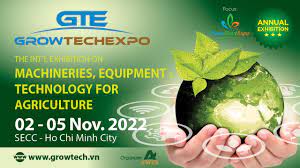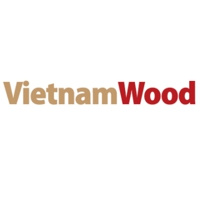- Read all
- Rice
- Fisheries
- Cassava
- Fertilizer & Pesticide
- Coffee
- Animal Feed
- Cocoa
- Seed
- Tea
- Wood
- Pepper
- Agricultural Cooperations
- Cashew
- Agricultural Investments
- Rubber
- Governmental Policies
- Sugarcane
- Agricultural Startup Ecosystem
- Corn
- Technological Innovations
- Spices
- Organic Agriculture
- Bean
- Food Manufacturing
- Fruit & Vegetable
- Agricultural Value Chain
- Flower
- Water & Waste Management
- Meat
- Processed Food
- Dairy
- Plant Originated Products
- General Agro Commodities
- Animal Originated Products
Organic development in Vietnam and lessons from Sri Lanka
July 12, 2022

Sri Lanka, from a tourist paradise island nation, has now fallen into a food crisis and defaulted on its debt. Photo: TL.
From the great experiment of organic farming in Sri Lanka
Vietnamese parents as well as all parents on this earth want for their children and grandchildren to eat clean food, food, and vegetables. Clean in the sense that it is free from chemical contamination, chemical fertilizers, pesticides, preservatives...
Therefore, if anyone is lucky enough to have a small garden, they try to use green manure and livestock by-products to fertilize crops and vegetables to serve their family. Of course, they will get a clean product, but the yield is often not satisfactory.
Vietnam's agriculture around the 1960s and earlier mainly developed in this direction, so the productivity was not high. Due to very low productivity and the situation of having to deal with wars, there was a constant shortage of hunger in the society.
However, many people believe that, due to the lack of use of chemical fertilizers and pesticides, Vietnam's agriculture at that time was the "harmony of nature and environment-friendly" agriculture. And thanks to eating vegetables and clean food, our ancestors and ancestors were healthier and less sick than their current descendants.
Recently, in Vietnam, there has been a tendency to promote the movement of homeowners and people doing organic farming. So can a country live entirely on organic farming?
Fortunately, in the past time, we have had the right answer to this question thanks to the results of the "great experiment" applied by the President of Sri Lanka within this country of 22 million people.

Sri Lankan farmers organic farming. Photo: TL.
The current President of Sri Lanka, Mr. Gotabaya Rajapaksa during the 2019 election campaign announced that: Within the next 10 years, Sri Lanka will completely switch to subsistence organic farming. He refused to spend half a billion dollars a year on the import of chemical fertilizers. The President decided to completely replace chemical fertilizers with manure, green manure and other organic products.
This decision caused surprise and then great concern among Sri Lankan agronomists and foreign experts at the Breakthrough Institute (Environmental Research Centre). Experts have worked hard and actively explained the basic facts in the field of biology to the President before he launched the policy with the following points:
First, it is a myth that pre-industrial agriculture existed in greater harmony with nature. Before the beginning of the industrial revolution, the world's population was less than 1 billion people, but three-quarters of the world's natural forests were destroyed.
Subsistence agriculture, shifting cultivation, and nomadism was widely developed at that time with very low productivity, forcing people to constantly convert forest and savanna land into arable land and pasture. As a result, the land quickly became infertile.
Second, non-chemical agricultural production was previously directed to food and food production. Due to low labor productivity, more than 90% of the world's population must be mobilized to work in this field.
Today, in developed countries, only about 4% of the population works in the agricultural sector. Even in developing countries, labor in this field has gradually decreased to only 45 - 50%.
When converting to organic food production, crop yields will be reduced by 30 - 50% and a large number of non-agricultural residents will be forced to return to farm work due to high labor costs. than for fertilizing and weeding by hand...
Third, the world's population is now about 7.7 billion, which has more than doubled since the Second World War, but thanks to the nutrients in synthetic fertilizers and modern technologies. In other times, global food production has more than tripled, thereby being able to feed nearly 8 billion people. But among them, about 4 billion people will surely starve to death if crop yields are not increased by synthetic fertilizers.
The notion that Sri Lanka will be able to replace inorganic fertilizers with organic fertilizers without catastrophic consequences for the agricultural sector is unthinkable. To replace the amount of nitrogen nutrients that synthetic fertilizers provide for agriculture (according to 2019 data), people will need a 5-7 times larger amount of organic fertilizer to provide farms. That is not to mention other nutritional needs such as phosphorus, potassium....

Applying organic farming has cost Sri Lanka's tea exports $425 million. Photo: TL.
Fourth, organic food and food are suitable products for the wealthy privileged population and it is also really profitable for the people who produce them. But according to statistics from FIBL (Institute of Organic Agriculture Research) and International Organization of Organic Agriculture (IFOAM) show that in 2021 there will be more than 71 million hectares of organic farming, equivalent to about 1.5% of the total. Farmed area and organic produce account for less than 1% of global agricultural production.
For example, the organic tea market accounts for only about 0.5% of the total tea market, and Sri Lanka simply won't be able to sell organic tea because the price of conventionally grown tea is extremely cheap.
However, the President of Sri Lanka did not pay attention to the above scientific arguments of experts. In April 2021, he entrusted the implementation of the project to the Minister of Agriculture (a representative of the Viyathmaga civil movement supporting the president). These people have prepared for the program that one of the key points of this program is the production of “all-organic agriculture” and the “revival of traditional spiritual values”.
The results of ignoring scientific calculations came as soon as six months later. Domestic production of rice (the staple food of Sri Lankans) fell by 20% and the price of rice increased by 50%. Sri Lanka, which has long been self-sufficient in rice, is forced to import $450 million worth of grain. In addition, due to a decrease in the production of tea, the main export item of Sri Lanka (70% of total production), the Sri Lankans lost an additional 425 million USD.
Half a million Sri Lankans have fallen below the poverty line, while just three years ago the World Bank ranked Sri Lanka as a high-middle income country. Unhappily, the Covid-19 pandemic has crippled Sri Lanka's tourism and gold mines, which bring in half of the country's foreign currency earnings.
Last fall, President Rajapaksa tried to relax a ban on the use of chemical fertilizers, pesticides and herbicides. But this was too late, the price of vegetables and fruits in the country increased 4-5 times, in the context of the economic crisis, riots broke out everywhere. The people of Sri Lanka began to enter a severe famine.
Finally, on April 22, 2022, Sri Lanka declared default because it could not pay its foreign debt of 51 billion USD and was waiting for a support package from the International Monetary Fund.

Caring for organic vegetables at Hoa Vien farm, Yen Trung commune, Thach That district, Hanoi. Photo: TL.
To the organic development movement in Vietnam
In Vietnam, in 2012 the Association of Organic Agriculture was established. Since then, we have achieved certain results in this field, but also faced many difficulties and challenges.
That is the fact that Vietnam's agriculture sector has no planning on organic production, no separate mechanisms and policies to support organic production. Usually, we only integrate implementation in other programs and projects such as agricultural development program with high technology application, support for linking production and consumption of agricultural products through contracts...
We also do not have many organizations certifying organic production. Most of the organic certification has to hire foreign organizations, so the cost is high and difficult to implement, especially for small and medium enterprises or single households.
The organic farming process and training materials on organic production in Vietnam are still very limited and not widely available, even the standards for organic farming are still controversial. consensus among ministries.
Besides, consumers do not trust and are lost in the maze between organic products and other conventional agricultural products. The production scale is still small, agricultural land is scattered, there is no policy on land accumulation and concentration, so it is difficult to produce on a large scale, leading to high investment costs and high selling prices.
In addition, human resources who are proficient in organic agricultural production are still too small compared to the demand, while Vietnam has not yet developed key programs and invested adequate resources to create a breakthrough in production. organic agricultural production.
However, some groups of experts still believe that Vietnamese agriculture following the trend of organic production is inevitable. Since then emerged a movement of people and households doing organic farming, while the proponents of this movement are still confusing the cultivation of high-tech agricultural products with safe agricultural products. organic agricultural products.
So, in addition to producing clean and safe agricultural products in the direction of VietGAP, is it necessary for GlobalGAP to develop organic farming? The obvious answer is needed.
We should select a number of agricultural production areas with strengths in land, climate, labor, consumption markets... to build collectives of businesses, cooperatives, and farming cooperatives. in this direction. Since then, there have been organic agricultural products to serve the needs of some high-income groups such as a chain of supermarkets and 5-star hotels in the country, for export to fastidious markets...
In addition, in families, people are also free and comfortable to participate in an "organic revolution" in the home garden, at least to satisfy their own preferences and have clean vegetables and food. safe for children and relatives to use daily without affecting the agriculture of the country.
Related news
-
ASEAN cooperates on digitalization in aid of rural development
In rural regions, digitalization and technological innovation present both benefits and obstacles.September 5, 2022 -
Newspaper print number 211, out today October 24, 2022
News of agriculture, farmers and rural areas featured in Vietnam Agriculture newspaper No. 211 today 24/10/2022.October 24, 2022 -
Farmers develop economic from a seedless fruit
Bao Lam seedless persimmon brings high economic efficiency to the people and is a famous specialty fruit with its distinctive flavor of Lang Son province.October 19, 2022 -
Farmers overcome the 'supplies price storm' with the No. 7 Hana rice variety
In the summer-autumn crop of 2022, the price of materials has increased. However, thanks to the production associated with the enterprise, along with the good harvest of Hana No. 7 rice variety, farmers have overcome difficulties.August 29, 2022 -
Macadamia: ‘Supernumerary actor’ becomes ‘the main role’
From intercropping and planting to cover bare land, macadamia in Dak Lak has now asserted itself as the main source of income for many families.August 26, 2022
Events See more

Vietnamplas 2022 - Vietnam International Plastic and Rubber Industry Exhibition
23-03-2023 - 26-11-2022 09:00 - 17:00
Saigon Exhibition and Convention Center (SECC) – 799 Nguyen Van Linh Boulevard, District 7, City. Ho Chi Minh.

GROWTECH EXPO - FLORAPLANTEXPO 2021
02 - 05-11-2022 09:00 - 17:00
Saigon Exhibition and Convention Center (SECC) – 799 Nguyen Van Linh Boulevard, District 7, City. Ho Chi Minh.

VTG 2022
18 - 25-10-2022 09:00 - 17:00
Saigon Exhibition and Convention Center (SECC) – 799 Nguyen Van Linh Boulevard, District 7, City. Ho Chi Minh.

VIETSTOCK 2022 - SPECIALISED EXHIBITION OF LIVESTOCK, FEED AND MEAT PROCESSING IN VIETNAM
12 - 14-10-2022 08:00 - 17:00
799 Nguyen Van Linh, Tan Phu Ward, Dist. 7, Hochiminh City, Vietnam

VTG 2022
21 - 27-09-2022 09:00 - 17:00
Saigon Exhibition and Convention Center (SECC) – 799 Nguyen Van Linh Boulevard, District 7, City. Ho Chi Minh.
.png)
VIETFISH 2022
22 - 26-08-2022 09:00 - 17:00
Saigon Exhibition and Convention Center (SECC) – 799 Nguyen Van Linh Boulevard, District 7, City. Ho Chi Minh.
Business Opportunities See more
-
BURANI INTERFOOD is looking for Buyers in Vietnam
Type:
November 22, 2021
-
BURANI INTERFOOD is looking for Buyers in Vietnam
Type: Wholesaling Meat
November 22, 2021
-
BURANI INTERFOOD is looking for Buyers in Vietnam
Type: Wholesaling Meat
November 22, 2021
-
BURANI INTERFOOD is looking for Buyers in Vietnam
Type: Wholesaling Meat
November 19, 2021
-
BURANI INTERFOOD is looking for Buyers in Vietnam
Type:
November 19, 2021
-
Indian purchaser looking for high quality cashew nut kernel from Vietnam
Type: Exporting Cashew
Mar 14, 2016
534
Limitless database of qualified and verified agricultural partners
124
Exclusive buy & sell leads on specific agricultural commodities
24
Agricultural events in Vietnam and Asia Pacific region
Stay informed!
Enter your email address below to receive updates each time we publishes new content
